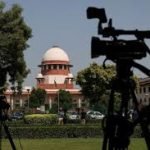The marriage between the Appellant (Rajesh Chaddha) and the Complainant (Ms. Mala Chaddha) took place on 12.02.1997.
The Complainant resided separately from the Appellant’s wife for a period of 12 days, from 08.09.1998 to 20.09.1998.
The Complainant, a teacher, resigned from her job prior to marriage and claimed to have spent over Rs. 5 lakhs towards the wedding.
A complaint was lodged on 20.12.1999 by the Complainant against the Appellant and her in-laws, alleging mental and physical torture, including demands for dowry.
Specific allegations included forcing the Complainant to consume milk mixed with narcotics/alcoholic substances, forcing her to attend parties, humiliation, attempts to kill her, keeping her in a safe house, and physical assault (kicks and punches) which allegedly caused a miscarriage on 23.09.1998.
The Complainant reiterated allegations of dowry demand of Rs. 2 lakhs and jewellery in her statement under Section 164 CrPC.
Previous Proceedings:
The Trial Court convicted the Appellant for offences under Section 323 r/w 34 and Section 506 IPC (which relate to voluntarily causing hurt and criminal intimidation respectively) and Section 498A IPC (cruelty) and Section 4 of the Dowry Prohibition Act, 1961.
The Appellant was sentenced to 2 years RI (Rigorous Imprisonment) and Rs. 5000/- fine for 498A IPC, and 1 year RI and Rs. 2000/- fine for Section 4 DP Act, 1961.
The Additional Sessions Judge dismissed the Appellant’s criminal appeal.
The High Court of Allahabad upheld the conviction under Section 498A IPC and Section 4 of the D.P. Act, 1961, finding no error of law or perversity in the lower court’s orders. The High Court noted that the divorce decree had attained finality.
Law Involved
Indian Penal Code (IPC):
Section 498A IPC, 1860 (Cruelty by husband or relatives of husband): Defines cruelty as any wilful conduct likely to drive a woman to suicide or cause grave injury/danger to life, limb, or health (whether mental or physical), or harassment for unlawful property demand.
Section 323 IPC (Voluntarily causing hurt).
Section 506 IPC (Criminal intimidation).
Dowry Prohibition Act (DP Act), 1961:
Section 3 (Penalty for giving or taking dowry): Punishes giving or taking dowry with imprisonment (not less than 5 years) and fine (not less than fifteen thousand rupees or the value of dowry, whichever is more). Dowry means any property or valuable security given or agreed to be given directly or indirectly for the marriage10.
Section 4 (Penalty for demanding dowry): Punishes demanding dowry with imprisonment (not less than 6 months, up to 2 years) and fine (up to ten thousand rupees).
Section 164 of the Code of Criminal Procedure, 1973 (CrPC): Relates to recording of confessions and statements.
Reasoning
The Trial Court’s judgment dated 28.08.2004 found that the prosecution had failed to prove its case against the Appellant for offences under Section 323 r/w 34 and Section 506 IPC, but found sufficient evidence for conviction under Section 498A IPC and Section 4 of the DP Act, 1961.
The Complainant’s allegations of physical assault resulting in sustained serious injuries and miscarriage were not supported by any medical examination or certificate. The prosecution did not attempt to adduce medical evidence. The Trial Court found that the miscarriage was “not a normal/ordinary course of events” but failed to prove physical assault beyond reasonable doubt.
The Trial Court held that the evidence of the Complainant was the only strong evidence regarding injuries, but physical assault by the accused persons was not proven by her testimony alone, as she stated having sustained injuries on her body.
The High Court, in its revisional jurisdiction, found no error of law or perversity in the impugned judgment and orders passed by the lower courts concerning the conviction under Section 498A IPC and Section 4 of the DP Act, 1961.
Learned Counsel for the Appellant argued that the allegations under Section 498A IPC and Section 4 of the D.P. Act, 1961 were unsustainable because there was no independent evidence on behalf of the prosecution, and the entire case hinges upon the deposition of the father of the Complainant and the Complainant herself.
The Supreme Court noted a tendency in criminal cases arising out of matrimonial disputes to implicate all members of the husband’s family, and often to make specific allegations without specific dates or events, leading to “unnecessary harassment of innocent family members”.
The Court highlighted that the deposition of the Complainant’s father indicated that the Complainant was harassed and beaten up for not bringing enough dowry, but reliance was placed on Bhagwan Jagannath Markad v. State of Maharashtra and Arun Vyas & Anr. v. Anita Vyas to emphasize the need to examine statutory provisions and the broad definition of “cruelty”.
The Court observed that despite allegations of physical assault and miscarriage, no medical document from any medical institution or nursery was produced to substantiate these claims.
There was no evidence beyond the statements of PW-1 and PW-2 (Complainant and her father) to prove dowry demands or sustained injuries. The court found that PW-1 and PW-2 were true and correct regarding the mental and emotional torture, but the physical assault was not corroborated.
The Court noted that the FIR was registered nearly a year after a divorce petition was preferred by the Appellant, suggesting the complaint was not genuine.
The Court remarked that it had “saved 6 years’ worth of time for the Appellant, who has endured litigation for over 20 years as of today”.
Holding
The Supreme Court found that the allegations of harassment and acts of cruelty within the scope of Section 498A IPC and Section 4 of the D.P. Act, 1961, were not ambiguous or made in thin air.
However, the Appellant (Rajesh Chaddha) was acquitted of all charges under Section 498A of the IPC and Section 4 of the D.P. Act, 1961.
The Court allowed the appeal and set aside the conviction of the Appellant under Section 498A IPC and Section 4 of the Dowry Prohibition Act, 1961.
Rajesh Chaddha V. State Of Uttar Pradesh
Supreme Court: 2025 INSC 671: (DoJ 13-05-2025)






